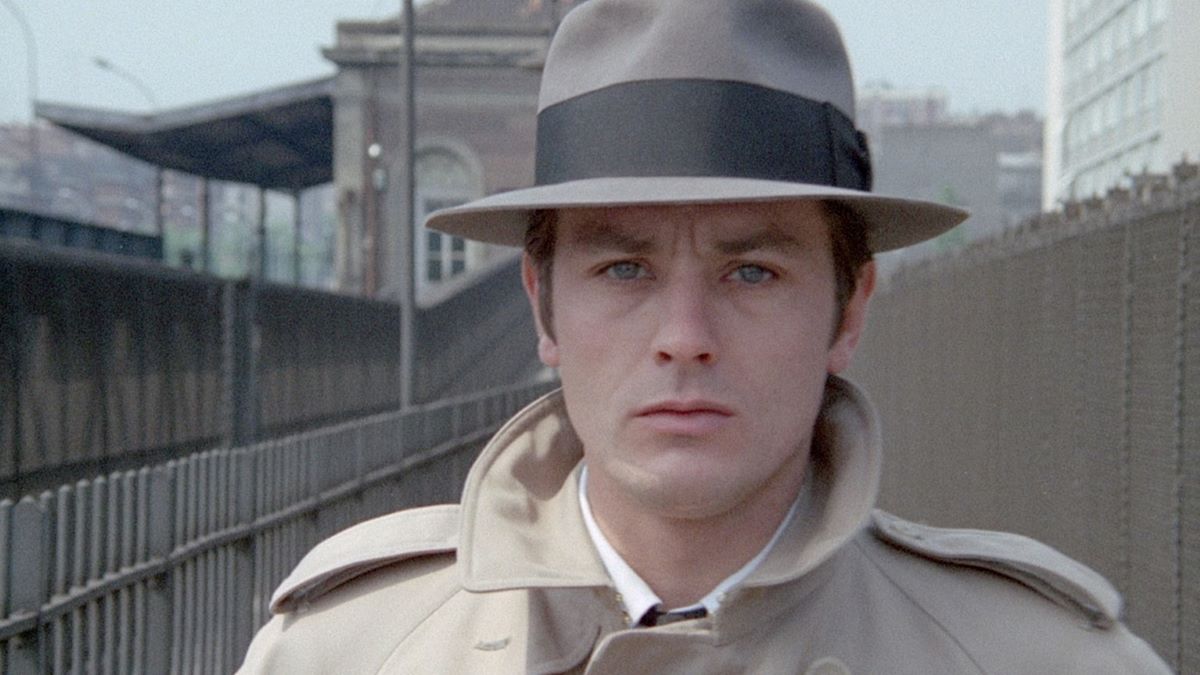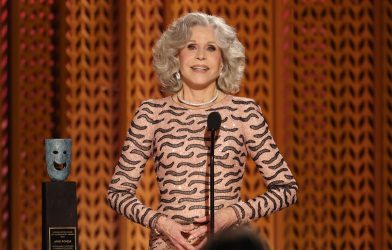by Stephen Vagg
The recent passing of Alain Delon has prompted much deserved coverage of his incredible filmography and colourful private life. Delon was one of the giants of European cinema and an international superstar, appearing in masterpieces like Purple Noon, The Leopard, The Samurai, and The Eclipse. It’s less well known that Delon never quite made it in Hollywood, despite numerous attempts.
By way of tribute, we thought we’d offer up our top ten of those attempts.
1) Signing with David O. Selznick in 1957
Before Delon became a French film star in the late 1950s, he almost went to Hollywood. The former soldier had barely commenced his acting career when he was spotted at the 1957 Cannes Film Festival by Henry Willson, the famous/notorious agent who specialised in discovering pretty boys like Rock Hudson, Troy Donahue, Robert Wagner and Rory Calhoun (Jim Parsons played him in the Ryan Murphy Netflix series Hollywood). Willson was struck by Delon’s beauty and arranged for the actor to meet legendary producer David O. Selznick (Willson’s former boss), then making A Farewell to Arms in Italy with Hudson. Selznick – who’d had another French smoothie, Louis Jourdan, under contract for years – offered Delon a seven year contract. However, Delon either signed and didn’t go to Hollywood or didn’t sign and didn’t go to Hollywood (we’ve never been able to confirm). It was a wise decision as Selznick made no further movies prior to his death in 1965, and Delon would become a huge star in France within just a few years courtesy of a hot streak of hits (Women Are Weak, Purple Noon, Rocco and His Brothers) and dating a beautiful film star (Romy Schneider).
2) MGM Sign Him to a Five Picture Deal
Hollywood studio Metro-Goldwyn-Mayer first had a serious look at Delon when Vincente Minnelli proposed him as the lead for the studio’s 1961 big-budget remake of Four Horsemen of the Apocalypse, the part that made Rudolph Valentino famous in the 1921 version. However, Metro were nervous at Delon’s lack of experience and instead decided to go for the greater box office security of Glenn Ford, whose spectacular miscasting contributed to Four Horsemen’s catastrophic financial failure. Delon’s career went from strength to strength via films like The Eclipse and The Leopard.
Perhaps aware that they’d made a mistake, MGM decided to get into the Delon business, signing him to a five picture contract. Their association began with Any Number Can Win (1963), a French crime melodrama starring Delon and Jean Gabin directed by Henri Verneuil, which MGM distributed in the US. Based on an American novel, it was a big hit in France, though not that widely seen in English speaking countries.
The second Metro-Delon collaboration was Joy House (1964), a mystery thriller which had a French producer (Jacques Bar), director (Rene Clement, who made Purple Noon) and setting, but was in English, with an American co-star (Jane Fonda) and adapted from an American book. The film isn’t much but the stars are gorgeous, and during filming Fonda met Roger Vadim, leading to her spending several years in France.
MGM invested some money in The Unvanquished (1964) (or Have I the Right to Kill?), a French film that Delon produced as well as starred in, playing a French Foreign Legion deserter who turns hitman for the OAS (a terrorist organisation aimed at keeping Algeria part of France – you might remember them from The Day of the Jackal). The film is really good, but ran into censorship trouble and wasn’t widely seen.
That wasn’t the case for Delon’s next film, The Yellow Rolls Royce (1964). MGM had enjoyed a big success with The VIPs (1963), a glossy multi story English film featuring a cast of stars, including a suave Frenchman (Lous Jourdan). The Yellow Rolls Royce was a similar kind of movie using the same writer, producer and director, this time casting Delon as a suave Frenchman. His co-stars included Ingrid Bergman, Rex Harrison, George C. Scott, Shirley MacLaine and Omar Sharif. The movie was a hit though no one talks much about it anymore.
@elegantcinephile The Yellow Rolls-Royce, 1964 #shirleymaclaine #alaindelon #yellowrollsroyce #elegantcinephile #60s #vintagefilm #oldhollywood #fyp ♬ original sound – elegant cinephile
MGM then gave Delon a proper Hollywood starring vehicle: Once a Thief (1965), featuring an American cast (including Ann-Margret and Jack Palance) and director (Ralph Nelson) from a novel by Zekial Marko (who wrote the novel on which Anyone Can Win was based). It’s an interesting gangster story which, like Joy House doesn’t quite work and wasn’t that popular. This is presumably why another announced MGM project for Delon – Ready for a Tiger, a romantic adventure directed by Sam Peckinpah – was never made.
3) Columbia Pictures and Lost Command (1966)
Delon was almost in Lawrence of Arabia (1962), released by Columbia Pictures – producer Sam Spiegel actually offered Delon the role of Sherif Ali after Spiegel’s original choice, Horst Buchholz, turned it down because he was making One Two Three (1961) with Billy Wilder. Delon was interested but had to turn the role down because he was committed to a play, so Spiegel then cast Maurice Ronet; Ronet couldn’t handle the contact lenses, and was replaced by Omar Sharif, who became an international superstar in the role (sidebar: Delon, Buchholz and Sharif would compete for a lot of “hunky foreigner” roles in Hollywood in the ‘60s)
Columbia’s connection to Lawrence may explain in part why the studio signed a three picture deal with Delon in the mid 1960s. As far as we can gather, the only film to result from this was Lost Command (1966), Hollywood’s one big A-picture look at the French colonial wars in Vietnam and Algeria. In addition to Delon, the film had Mark Robson (coming off Von Ryan’s Express) as director, Anthony Quinn as star, Claudia Cardinale (from The Leopard) as Delon’s love interest, and George Segal in brown face as an Arab. The movie is consistently interesting but was a box office disappointment in the US. In hindsight, it’s perhaps not too surprising – the storyline concerns the French being kicked out of Vietnam and about to be kicked out of Algeria, and it was overshadowed by The Battle of Algiers (1966). Still, Lost Command gets points for novelty and Delon’s performance is fine.
4) Delon tries a Western: Texas Across the River (1966)
Delon always wanted to make a Western – he was an admirer of Sam Peckinpah’s Ride the High Country and tried to make two films with that director (Man on a Horse and Ready for the Tiger – at least we think that they’re different films; neither was actually made). Instead, Delon wound up in the comedy Western, Texas Across the River, directed by Michael Gordon, starring Dean Martin as a gunslinger, and Joey Bishop, the fifth member of the Rat Pack, as a comic Indian. Delon plays a dashing Spaniard, a role that feels like it might’ve originally been intended for Frank Sinatra – the film has a Rat Pack vibe, and feels similar in tone to the 1963 Sinatra-Martin comedy Four for Texas – but it at least has been clearly rewritten for Delon. Texas Across the River was quite popular at the US box office – one guesses that this was due to Dean Martin, then at his Matt Helm peak. The trailer below features Bishop more than Delon:
5) Ray Stark and Is Paris Burning? (1966)
Ray Stark, the legendary producer, was an early admirer of Delon’s, signing the actor to a four-picture deal via his company Seven Arts in 1961. Delon was announced for various Seven Arts projects over the years, some of which were never made (an Alexandre Dumas biopic, a musical with Nancy Kwan called Meet Me in Hong Kong), one that started filming with Delon but was halted then resumed years later with another actor (Marco the Magnificent), and some made with other actors (The Night of the Iguana, This Property is Condemned). The only Seven Arts project that resulted in a finished film with Delon was the Stark-produced Is Paris Burning?, an all-star (well, all-French-star) account of the liberation of Paris in World War Two, full of interesting names behind and in front of the camera (Gore Vidal, Francis Ford Coppola, Orson Welles, Jean Paul Belmondo); Delon’s role is relatively brief. This was a big hit in France but less so elsewhere. The movie was panned at the time but holds up a lot better now simply because we don’t make movies like that anymore.
6) The Girl on a Motorcycle (1968)
Delon could not complain about the beauty of his co-stars – this film has Marianne Faithful riding a motorbike in leather and having lots of sex with Delon. It’s an odd drama, directed by Jack Cardiff, that was very popular in Britain, perhaps due to the trailer which emphasises Faithfull straddling hot chrome. Girl on a Motorcycle falls into a subgenre of Delon movies which might be called “a lot of scenes of hot people being hot” of which Swimming Pool (1969) is another example.
7) Hollywood Comes to France
While Delon’s sojourn in Hollywood had been a little disappointing, his consistent success in Europe prompted Hollywood studios to directly invest in some of his European films in the late 1960s. AIP kicked in funds for the terrific horror anthology Spirits of the Dead (1968), where Delon’s segment was directed by Louis Malle and he co-starred with Brigitte Bardot. The movie wasn’t a huge hit, but it has a devoted cult and is one of the classiest movies AIP was associated with (Roger Vadim and Federico Fellini directed the other two segments.)
The Sicilian Clan (1969) was made with a big chunk of change from 20th Century Fox, whose then-president Daryl F. Zanuck was a Francophile (the film co-starred Zanuck’s mistress Irina Demick). This was devised to be a big fat international commercial hit – a story about gangsters, Delon’s co-stars included Jean Gabin and Lino Ventura, the director was Henri Verneuil, there was an English language version – but while it was a blockbuster in Europe, again, the Americans didn’t really go.
This was the case, too, for Borsalino (1970), a gangster film mostly financed by Paramount, which teamed Delon with his great male star rival, Jean Paul Belmondo. The two of them are splendid in a very entertaining film that the French loved – but Americans were mostly indifferent. Incidentally, the making of the movie was a bit of a diva fest – both Delon and Belmondo had it in their contracts that they were entitled to the same number of close ups and Belmondo was forever paranoid that Delon (who produced) would edit the film to favour him and indeed wound up suing him. Cat fight!
During the 1970s, Delon films sometimes had Americans in them in an attempt to appeal to the American market (eg. Richard Crenna in A Cop (1972)). That didn’t work either.
8) Delon and Charles Bronson
Delon helped turn crag-faced Charles Bronson into a European superstar by co-starring alongside him in Farewell, Friend (1968), a buddy heist film that was a blockbuster in France, if not the US. This led to Bronson becoming an international star after being in support roles for almost two decades.
Some enterprising producers then reteamed Delon and Bronson in the English language spaghetti Western Red Sun (1972) which became famous for its “something for everyone” cast: American Bronson, Frenchman Delon, Japanese Toshirō Mifune, and Swiss Ursula Andress, (Englishman Terence Young directed, in Spain, with European finance). Red Sun actually made a lot of money internationally, but as with pretty much all of Delon’s English speaking efforts, failed to make much headway in the US.
9) Scorpio (1973)
Delon tried to crack America again, reuniting with his old co-star from The Leopard, Burt Lancaster, in this paranoid conspiracy thriller for director Michael Winner. Delon plays a cat-loving hitman. The film was shot at CIA headquarters in Langley despite being not that flattering a depiction of the spy organisation. Scorpio has a passionate fan base but was a box office disappointment on release and sent Delon scurrying back to France once more.
10) Concorde – Airport ’79 (1979)
Delon’s final attempt to make it in Hollywood was the fourth in the Airport franchise, which focused on the Concorde airplane, and meant that Delon’s casting as a pilot was at least logical. Sylvia Kristel was also in it; she later wrote in her memoirs that Delon was unhappy with the size of his trailer and took the director’s, despite the latter’s objections.
Concorde – Airport 79 is one of those films that has to be seen to be believed, whether it’s George Kennedy going “they don’t call this the cockpit for nothing” or constantly talking about his dead wife, or an assassin turning up at Susan Blakely’s house, or Blakely uncovering an arms racket run by boyfriend Robert Wagner who arranges for a missile to try to shoot down the Concorde, or Jimmie Walker playing on a saxophone, or Martha Raye getting drenched in the toilet. And Eric Roth worked on the script! Anyway, it was a great way for Delon to kill his Hollywood career. Mind you, the fact he never learned to speak English clearly might also have had something to do with it.
Honourable mention: Two with Joseph Losey
In the 1970s, Delon mostly worked on commercial French films – cop stories, thrillers, and the like – but he occasionally took a trip on the international arthouse side, notably making two for auteurist darling Joseph Losey. In The Assassination of Trotsky (1972), which was in English, Delon plays the title role, who kills Richard Burton’s Trotsky. In Mr Klein (1976), which was in French, Delon played a businessman in occupied Paris. Neither movie enjoyed the success of Losey’s sixties efforts, but they received a lot of critical attention, and it was good to see Delon still in there, swinging. He tried less as the decade went on, although there was the odd exception such as Swann in Love (1984) with Jeremy Irons from Volker Schlöndorff.
Looking back, why did Delon fail to “crack” the Hollywood market? Well, he never lived there long term, in contrast to say Maurice Chevalier, Charles Boyer or Louis Jourdan. He never had a blockbuster French language hit in the way Brigitte Bardot did or an English language one the way Catherine Deneuve or even Gerard Depardieu did. He was possibly too pretty (we’ve all got our crosses to bear in life) and he never mastered English. Also, Delon’s bread and butter – gangster films – didn’t seem to translate to the US, who preferred their own.
Another article on this topic is here.
To be fair, none of this really mattered – Delon’s European CV was so spectacularly good. In addition to the films we’ve mentioned here, we should give a shout out to the following:
The Black Tulip (1964) – a really fun swashbuckler
The Last Adventure (1967) – a sort of Jules and Jim adventure tale, two dudes and the girl they both love, really fun.
The Widow Couderc (1973) – great thriller with Simone Signoret
Shock Treatment (1973) – like a bizarre Almodovar film
The Kids Are Watching (1978) – unexpected shocking thriller about some kids who turn killer









